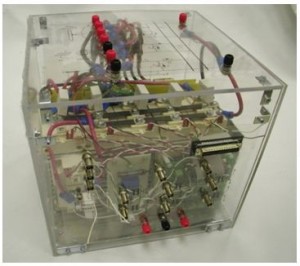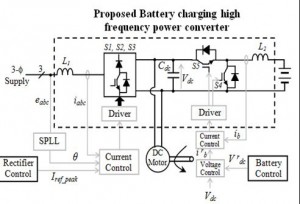This paper presents a novel analysis, design, and implementation of a battery charging three-phase high frequency semicontrolled power converter feasible for plug-in hybrid electric vehicles. The main advantages of the proposed topology include high efficiency; due to lower power losses and reduced number of switching elements, high output power density realization, and reduced passive component ratings proportionally to the frequency. Additional advantages also include grid economic utilization by insuring unity power factor operation under different possible conditions and robustness since short-circuit through a leg is not possible. A high but acceptable total harmonic distortion of the generator currents is introduced in the proposed topology which can be viewed as a minor disadvantage when compared to traditional boost rectifiers. A hysteresis control algorithm is proposed to achieve lower current harmonic distortion for the rectifier operation. The rectifier topology concept, the principle of operation, and control scheme are presented. Additionally, a dc-dc converter is also employed in the rectifier-battery connection. Test results on 50-kHz power converter system are presented and discussed to confirm the effectiveness of the proposed topology for PHEV applications.


Proposed battery charging converter and its control strategy – Hardware converter module and Schematic diagram


